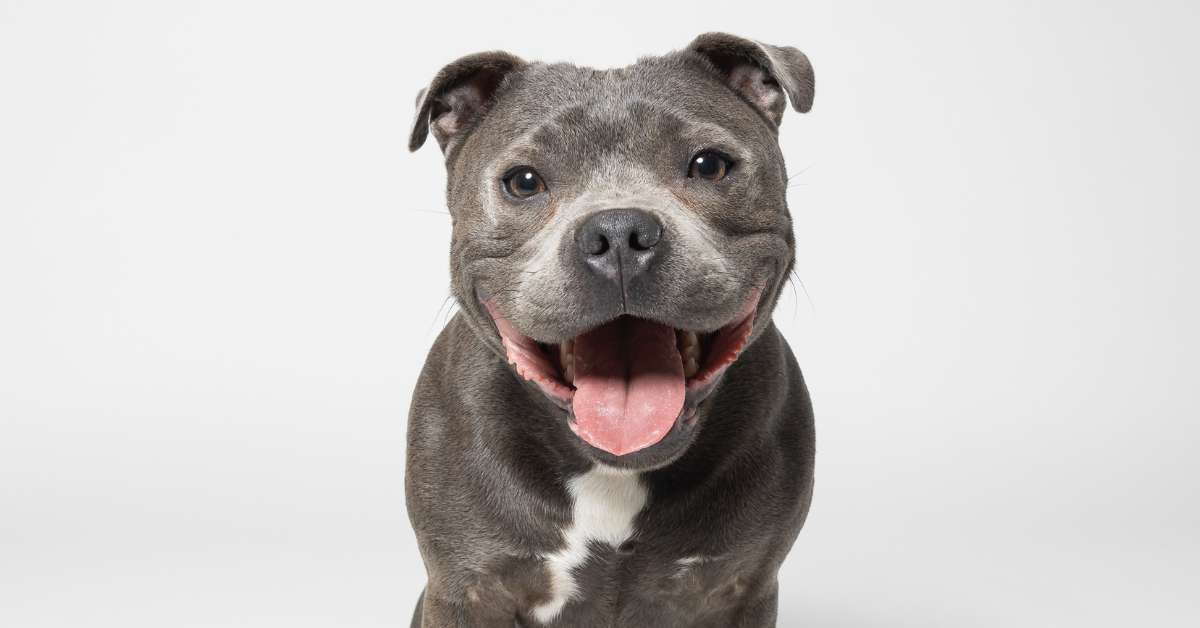Dog Constipation: Symptoms, and Easy Home Remedies

As devoted pet owners, our primary mission is to nurture a happy and wholesome lifestyle for our furry friends. Yet, despite our best attempts, we may face challenges like constipation in dogs, which can interfere with our dog’s overall well-being.
Understanding the intricacies of your dog’s digestive system is paramount in maintaining their optimal health.
In this comprehensive guide, we’ll delve into the various facets of dog constipation, shedding light on factors such as your dog’s diet, the workings of their digestive tract, and how specific food choices, like pumpkin pie filling or canned food, can impact their digestive health.
Whether you’re dealing with a constipated dog or simply seeking proactive measures to prevent it, this article will equip you with the knowledge and tools to ensure your canine companion enjoys a comfortable and thriving life.
8 Symptoms of Dog Constipation
Recognizing the symptoms of dog constipation is crucial for any responsible pet owner. Constipation in dogs can cause discomfort and potentially lead to more serious health issues if left untreated.
Understanding the signs allows you to take prompt action and seek appropriate care for your furry friend.
In this section, we’ll outline the common indicators of dog constipation, enabling you to spot them early and provide your canine companion with the care they need.
1. Infrequent Bowel Movements
One of the most evident signs of constipation in dogs is a significant reduction in the frequency of bowel movements.
If your dog typically has regular daily bowel movements and suddenly experiences a prolonged gap between them, it could indicate constipation.
2. Straining During Defecation
When a dog is constipated, it may exhibit visible signs of discomfort and strain while attempting to pass stool.
This may involve repeated squatting without producing any feces or producing small, dry, and hard stools.
3. Dry, Hard Stools
Consistency and appearance of stool are important indicators of a dog’s digestive health.
Constipated dogs often pass stools that are noticeably drier, harder, and more difficult to pass. These stools may appear smaller in size and darker in color than usual.
4. Abdominal Discomfort
Constipation can cause discomfort in a dog’s abdominal region.
You may notice your dog exhibiting signs such as restlessness, pacing, or sensitivity when you touch their abdomen.
They may also assume a hunched posture.
5. Loss of Appetite
A constipated dog may experience a decreased appetite.
This is because the discomfort and fullness associated with constipation can lead to a loss of interest in food.
6. Lethargy and Unusual Behavior
Constipated dogs might display changes in their behavior.
They may become lethargic, less playful, and seem generally unwell. Some dogs may seek solitude or exhibit signs of irritability.
7. Vomiting or Dry Heaving
In severe cases of constipation, the rectum can become so impacted that it puts pressure on the surrounding organs, including the stomach.
This pressure can lead to vomiting or dry heaving.
8. Presence of Blood in Stool
While not a common symptom of uncomplicated constipation, in severe cases, straining during bowel movements can lead to small tears in the rectal area, resulting in traces of blood in the stool.

Being attuned to these symptoms of dog constipation is the first step in ensuring your pet’s digestive health.
If you find any of these signs occurring for more than a day or two, or if they worsen, it’s necessary to consult your veterinarian promptly.
Early intervention and appropriate care can help alleviate your dog’s discomfort and prevent potential complications.
In the next section, we’ll explore the potential complications of dog untreated constipation, shedding light on what might be contributing to this issue in your furry companion.
Complications of Untreated Constipation
Constipation in dogs, if left unaddressed, can lead to a range of serious complications that not only cause discomfort but can also affect their overall health.
Understanding the potential risks associated with untreated constipation is essential for responsible pet ownership.
Here various complications can arise when constipation is not promptly and effectively managed.

1. Impacted Rectum
When constipation persists, it can lead to a condition known as rectal impaction.
This occurs when dry and hardened stool accumulates in the rectum, making it difficult or even impossible for your dog to pass feces.
It’s an uncomfortable and potentially painful condition that requires immediate veterinary attention.
2. Rectal Prolapse
In severe cases, prolonged straining during bowel movements can lead to a rectal prolapse.
This is a serious condition where the rectal lining protrudes outside the body.
It’s painful and necessitates emergency veterinary care.
3. Megacolon
Chronic constipation can lead to the enlargement of the colon, a condition known as megacolon.
This makes it increasingly difficult for the colon to propel stool effectively, exacerbating the issue. Megacolon requires specialized veterinary treatment.
4. Hernias
The strain from persistent constipation can lead to the development of hernias, particularly in the abdominal region.
These can be painful and may necessitate surgical intervention.
5. Secondary Health Issues
Untreated constipation can lead to a host of secondary health problems.
These may include urinary tract issues, as an impacted rectum can put pressure on the bladder.
Additionally, if toxins from stagnant stool are absorbed into the bloodstream, it can lead to systemic health concerns.
6. Loss of Appetite and Weight Loss
Chronic constipation can lead to a reduced appetite and subsequent weight loss.
The discomfort associated with constipation can cause dogs to lose interest in food.
7. Behavioral Changes
Dogs experiencing chronic constipation may exhibit changes in behavior.
They may become irritable, withdrawn, or exhibit signs of discomfort or anxiety.

Understanding the potential complications of untreated constipation underscores the importance of proactive and timely intervention.
If you suspect that your dog is experiencing constipation, it’s crucial to consult your veterinarian promptly.
With appropriate care and treatment, you can alleviate your furry friend’s discomfort and prevent the development of more serious health issues.
Remember, responsible pet ownership involves vigilance and a commitment to ensuring your canine companion’s optimal health and well-being.
What Can I Give My Dog for Constipation? 5 Home Remedies – The Native Pet
Seeing your furry friend struggle with constipation can be a cause for concern, but there are several safe and effective home remedies that can help alleviate their discomfort.
Before administering any remedies, it’s crucial to consult with your veterinarian to rule out any underlying health issues.
Here we explore five gentle and natural solutions to relieve your dog’s constipation, using easily accessible items that you likely already have in your kitchen.
1. Increased Water Intake
Proper hydration is essential for maintaining a healthy digestive system. Ensure your dog has access to clean, fresh water at all times.
If your dog is reluctant to drink, consider adding a low-sodium broth to their water bowl to entice them.
2. Dietary Fiber
Introducing more fiber into your dog’s diet can help soften stool and promote regular bowel movements. You can add fiber-rich foods like canned pumpkin (not pumpkin pie filling) to their meals.
Start with a small amount and gradually increase to avoid any sudden changes in their digestive tract.
3. Olive Oil
Olive oil is a natural lubricant that can help soften stool and facilitate smoother bowel movements. Add a teaspoon of olive oil to your dog’s food, taking care not to exceed the recommended amounts to avoid potential digestive upset.
4. Exercise
Regular physical activity is important for maintaining a healthy digestive system. Encourage your dog to engage in light to moderate exercise, such as walks or playtime in the yard.
Exercise stimulates the muscles in the digestive tract, which can help alleviate constipation.
5. Probiotics
Probiotics are beneficial bacteria that can aid in restoring balance to your dog’s digestive system.
You can find probiotic supplements specifically designed for dogs at pet stores or consult your veterinarian for recommendations.

FAQs
1. What home remedy can I give my dog for constipation?
A: Canned pumpkin (not pumpkin pie filling) is a widely used and safe home remedy for dog constipation.
It’s a natural source of fiber that can help soften stool and promote regular bowel movements. Start with a small amount and gradually increase if needed.
2. What is a natural stool softener for dogs?
A: Olive oil is a natural stool softener for dogs. It acts as a gentle lubricant, making it easier for your dog to pass stool.
Adding a small amount (around a teaspoon) to their food can help alleviate constipation. However, be cautious not to exceed the recommended amounts to prevent digestive upset.
3. Can I give my dog olive oil for constipation?
A: Yes, you can give your dog olive oil for constipation. It is a safe and natural remedy that can help soften stool and facilitate smoother bowel movements.
Remember to introduce it gradually and consult your veterinarian if you have any concerns about dosage or its suitability for your specific dog.

Final Notes
Dealing with a constipated dog can be a worrisome experience for any pet owner, but with the right knowledge and approach, you can effectively address the issue and restore your furry friend’s digestive health.
Remember, understanding your dog’s normal bowel habits is crucial in identifying signs of constipation early.
Look out for symptoms like infrequent bowel movements, straining during defecation, and dry, hard stools. Prompt attention to these signs can prevent discomfort and potential complications.
In this guide, we’ve covered a range of approaches to help alleviate dog constipation.
From simple dietary adjustments and natural remedies like canned pumpkin and olive oil, to exercise and hydration, there are many steps you can take at home.
Always consult your veterinarian before starting any treatment, especially if your dog’s constipation persists or worsens.
Ultimately, a balanced diet, regular exercise, and proper hydration are key to maintaining your dog’s digestive health.
Paying attention to their well-being and seeking professional advice when needed ensures your canine companion enjoys a comfortable and thriving life.
Your commitment to their health is a testament to the strong bond between you and your furry friend. Here’s to many happy, healthy days ahead!
